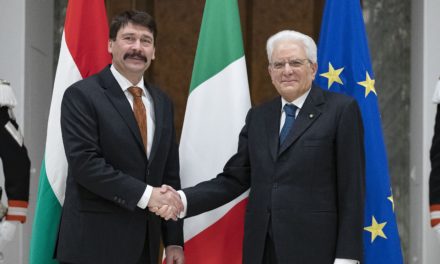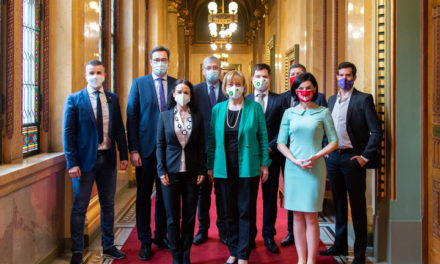Abolishing the EU veto would lead to the destruction of the European project, State Secretary Marcin Przydacz, head of the Polish president's foreign affairs office, said on Polish public radio on Wednesday.
In his statement, Przydacz reacted to the fact that the European Parliament's (EP) Constitutional Affairs Committee (AFCO) will vote on the report containing the proposals for amending EU treaties on Wednesday.
"The Poles want to remain part of the European Union (EU), and they will remain"
- emphasized the state secretary. He added: on the other hand, a just EU must be fought for, and the effort to end the veto right can be interpreted as an "attempt at authoritarianism" that will bring about the destruction of the European project.
"Everyone should consider whether they want Polish officials or Brussels to decide on illegal immigration to Poland in the future"
Przydacz stated, adding that this is ultimately the essence of the matter.
According to the draft, 267 amendments would be introduced to the basic treaties, according to which the powers of the EU institutions would be expanded and unanimous decision-making would be abolished in 65 areas.
Polish MEP Jacek Saryusz-Wolski, a member of AFCO, who refused to support the report on behalf of the European Conservatives and Reformers faction, told the PAP news agency on Wednesday: the document is the EU
means its "radical centralization, which would actually turn the Union into a centralized, oligarchic super-state slipping out of democratic control".
Government spokesman Piotr Müller said on TVP Info on Tuesday that the proposed amendments would essentially mean the abolition of nation-states and the creation of "an EU superstate". According to the project, several EU member states could be voted off in important matters. "It is clear that Germany and other large member states move the strings in such cases," warned Müller.
The spokesman expressed his hope that the amendments to the basic treaties, which require unanimity for their adoption, will be opposed by several member states.
According to the Polish media, the possible acceptance of the report in the EP's constitutional affairs committee would mean the beginning of a multi-stage treaty amendment procedure. As a second step, the debate and voting of the plenary session of the EP would follow. The process would be concluded by a unanimous decision taken at a convention organized with the participation of representatives of the heads of state and government, national parliaments, the EP and the European Commission.
MTI
Featured image: MTI/EPA/ANSA/Concetta Rizzo












